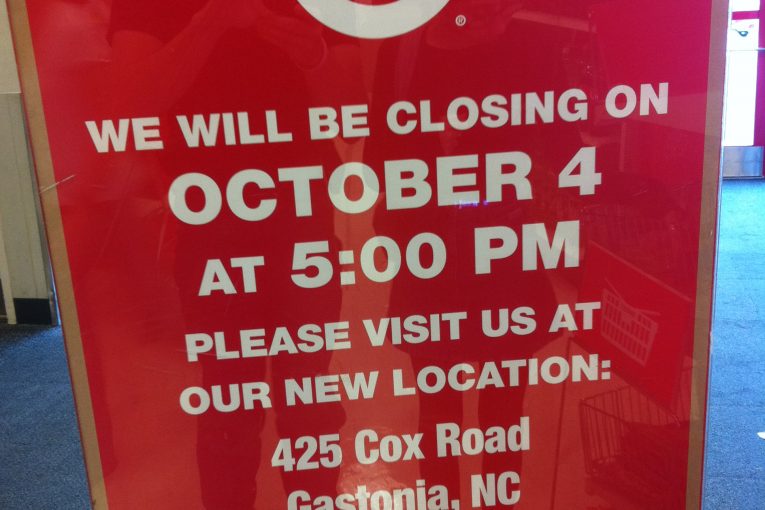

By Riya Vyas
BAY AREA, CA–Target is shutting down nine stores, including three in the Bay Area and the only Target in Oakland, CA, beginning Oct. 21, due to an increase in theft and organized retail crime, according to their press release.
Retail stores across the country are facing lower profit margins, and several stores claimed their lower profits are due to inventory shrink, caused by factors ranging from shoplifting to vendor fraud to inventory damage, according to CNBC. Stores such as Target, however, are attributing reduced profits to organized retail crime in particular.
Target expects to lose 1 billion in shrink in 2023, according to CNBC, and retail shrink represented $94.5 billion in losses in 2021, according to the National Retail Foundation’s 2022 Retail Security Survey. While external theft, which includes organized retail theft, accounted for the greatest percentage of shrink at 37%, the report includes no separate category for organized retail theft specifically.
“We know that there are opportunities for people to resell stuff that they acquire through theft, whether organized or not,” Professor of Criminal Justice Law at UC Berkeley Law Jonathan Simon said. “Some of the highly publicized incidents of group thefts that have been videoed and shared on the web have a very powerful effect in terms of alarming people and giving people a sense that there’s a great amount of lawlessness in their environment, that can kind of outweigh the objective evidence of how prevalent these incidents actually are.”
Stores close down to cut costs and as part of cycle expansion and contraction, Executive Director of the Criminal Law and Justice Center Chesa Boudin said. Online marketplaces such as Amazon and eBay not only outcompete brick and mortar retail stores, but also allow people to easily resell stolen goods, increasing the demand for theft, Boudin said.
“In some individual cases it may be related to theft or loss, but overall there is not much evidence that is what is driving the business decisions to close stores, though it is often the reason businesses state to the media when they close,” Boudin said.
Nevertheless, companies’ assertions of retail crime have policy implications. Target is supporting the congressional bill Combating Organized Retail Crime Act, according to Target’s press release. The bill would establish an Organized Retail Crime Coordination Center to increase cooperation between federal and state law enforcement to track and share data about organized retail crime.
California invested over $267 million in 55 law enforcement agencies to create retail theft investigative agencies, increase arrests, and install surveillance technology in efforts to combat organized retail theft, according to Newsom’s press release.
“Overall, putting money into policing is highly inefficient because a lot of it goes to overtime and other kinds of very expensive time that may not actually do much to change this,” Simon said. “I think the most effective steps would be to actually change the market outlets for reselling this stuff.”
Aside from theft, assaults on retail employees can be a real issue for companies, Boudin said.
“Most retail stores now direct their employees, including security guards, not to try to stop thieves to avoid the potential for assaults,” Boudin said. “They are successfully lobbying for taxpayers to take on those responsibilities and opposing state laws that require safety plans for employees who are potentially assaulted.”
The targets of suspicion for shoplifting and organized retail theft are often the usual suspects: unhoused people and Black people, even if that is not true, Simon said.
“If we could unpack the organized retail theft, we’ll probably find that there are people of different racial groups and different class positions involved, especially in the more profitable parts of the supply chain,” Simon said.
General fear about crime is often driven by media reporting and sensationalistic social media, rather than actual crime data, Boudin said.
In fact, both violent and property crime in California have decreased steadily since 1992 and remain at significantly lower levels despite year-to-year fluctuations, according to the Public Policy Institute of California.
However, even if retail stores are ultimately outcompeted because of online shopping, theft of property delivered at people’s doorsteps will likely begin increasing, Simon said.
“As long as we have, essentially, capitalism, we will have theft,” Simon said.
Riya Vyas is a writer for the Vanguard at Berkeley’s Prison Reform Desk. She is a freshman at UC Berkeley on the pre-law track.





Three more Targets closing in San Francisco and several Satrbucks to boot. Democrat rule and their policies are causing San Francisco to spiral down into a doom loop.
https://www.cnn.com/2023/10/12/business/target-closing-us-cities-crime-dg/index.html
Have you noticed how many stores in San Francisco now have to lock their goods behind glass?
I am glad Keith brought up the topic of doom loops. One currently exists in bright red Florida.
In other words Republicans have turned Florida into a giant dump.
Right, that’s why people are moving to Florida in droves. In 2022 Florida was the fastest growing state in the nation. Florida is doing well despite your highly biased article.
My article is no more biased than your extremely one-sided comment about San Francisco being in a so-called doom loop. My article included a few indisputable facts that backed up the author’s conclusion that Florida is in the midst of its own doom loop due to Florida Republicans being more interested in pointless culture wars.
More evidence there is a Florida Republican doom loop, from a conservative publication no less. This proves what Keith earlier assserted to be false. Namely that no doom loop exists in Florida.
Home Insurance Is So High in This Florida Town, Residents Are Leaving
In West Palm Beach’s Flamingo Park neighborhood, some homeowners are dropping insurance, and others who can’t are selling.
Then the renewal for his home insurance arrived. The new rate for the year starting in September was around $121,000—more than seven times what the Molinaris said they paid last year, and more than 13 times what they paid when the family moved to Florida in 2019.
While they found a better rate from another insurer, at about $33,000 it is still nearly double what they paid last year. The family this month listed the home for sale with an asking price of nearly $3.5 million after determining that insurance costs made staying there too expensive. Others in Flamingo Park told The Wall Street Journal they are drawing the same conclusion.
The evidence is piling on that a definite doom loop does exist in red Florida. New neighbors with bad attitudes aren’t good.
Keith Olsen’s premise is nothing more than right wing misinformation.